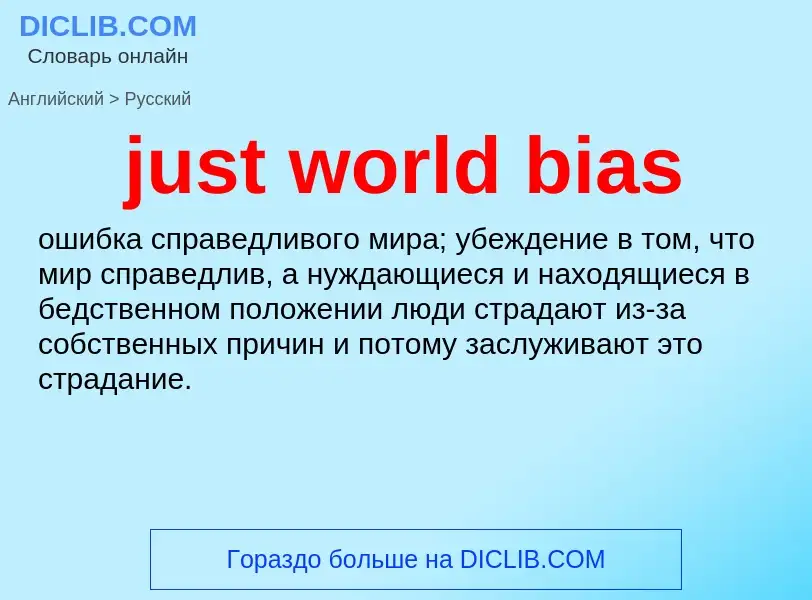Μετάφραση και ανάλυση λέξεων από την τεχνητή νοημοσύνη ChatGPT
Σε αυτήν τη σελίδα μπορείτε να λάβετε μια λεπτομερή ανάλυση μιας λέξης ή μιας φράσης, η οποία δημιουργήθηκε χρησιμοποιώντας το ChatGPT, την καλύτερη τεχνολογία τεχνητής νοημοσύνης μέχρι σήμερα:
- πώς χρησιμοποιείται η λέξη
- συχνότητα χρήσης
- χρησιμοποιείται πιο συχνά στον προφορικό ή γραπτό λόγο
- επιλογές μετάφρασης λέξεων
- παραδείγματα χρήσης (πολλές φράσεις με μετάφραση)
- ετυμολογία
just world bias - translation to ρωσικά
Ορισμός
Βικιπαίδεια
The just-world hypothesis or just-world fallacy is the cognitive bias that assumes that "people get what they deserve" – that actions will have morally fair and fitting consequences for the actor. For example, the assumptions that noble actions will eventually be rewarded and evil actions will eventually be punished fall under this hypothesis. In other words, the just-world hypothesis is the tendency to attribute consequences to—or expect consequences as the result of— either a universal force that restores moral balance or a universal connection between the nature of actions and their results. This belief generally implies the existence of cosmic justice, destiny, divine providence, desert, stability, order, or karma. It is often associated with a variety of fundamental fallacies, especially in regard to rationalizing suffering on the grounds that the sufferers "deserve" it.
The hypothesis popularly appears in the English language in various figures of speech that imply guaranteed punishment for wrongdoing, such as: "you got what was coming to you", "what goes around comes around", "chickens come home to roost", "everything happens for a reason", and "you reap what you sow". This hypothesis has been widely studied by social psychologists since Melvin J. Lerner conducted seminal work on the belief in a just world in the early 1960s. Research has continued since then, examining the predictive capacity of the hypothesis in various situations and across cultures, and clarifying and expanding the theoretical understandings of just-world beliefs.

 - The Four Doctors of the Western Church, Saint Augustine of Hippo (354–430).jpg?width=200)
